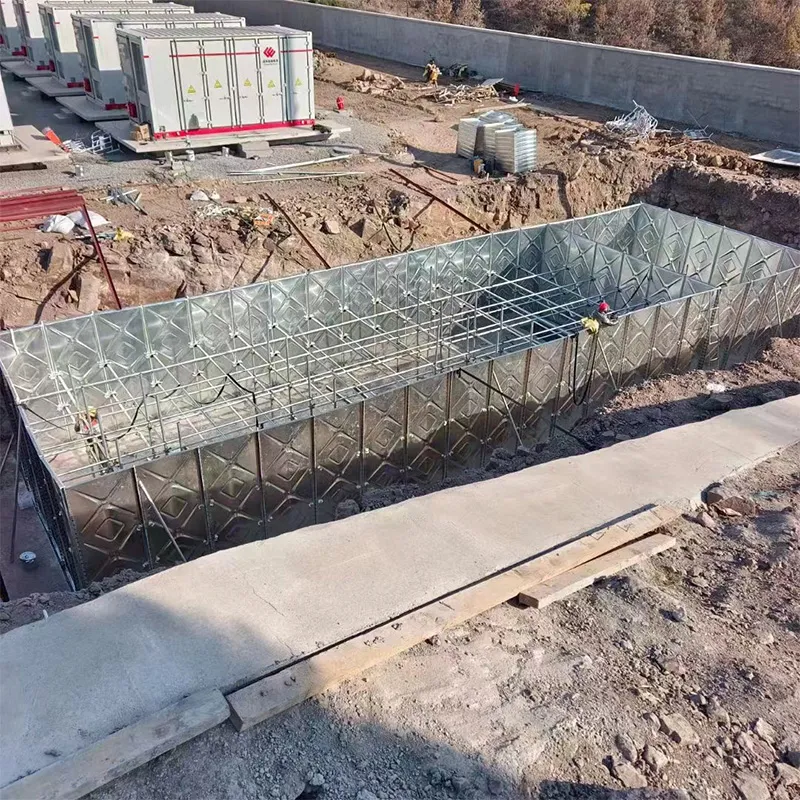loading...
- No. 9, Xingyuan South Street, Dongwaihuan Road, Zaoqiang County, Hengshui, Hebei, China
- admin@zjcomposites.com
- +86 15097380338
- Welcome to visit our website!
Efficient Filtration System for Fluid Management in Industrial Applications
Understanding FRP Filter Vessels The Ideal Solution for Filtration Needs
In the realm of industrial filtration, the choice of materials and design significantly influences the efficiency and effectiveness of the filtration process. One standout option is the Fiberglass Reinforced Plastic (FRP) filter vessel. As industries increasingly demand higher performance and durability, FRP filter vessels have emerged as a preferable solution across various applications.
What is an FRP Filter Vessel?
An FRP filter vessel is a type of filtration system that employs fiberglass reinforced plastic as its primary construction material. This advanced composite material combines the strength of glass fibers with the lightweight and corrosion-resistant qualities of plastic, resulting in a vessel that is both robust and highly functional. These vessels are designed to accommodate different filter media, serving a wide array of industries including water treatment, chemical processing, and food and beverage production.
Key Benefits of FRP Filter Vessels
1. Corrosion Resistance One of the most significant advantages of FRP filter vessels is their resistance to corrosion. Traditional materials like steel often succumb to corrosion when exposed to harsh chemicals or moisture, leading to maintenance issues and downtime. In contrast, FRP materials can withstand aggressive environments, ensuring a longer operational life without the need for frequent replacements.
2. Lightweight Design FRP filter vessels are considerably lighter than their metal counterparts. This attribute simplifies transport and installation, reducing labor costs and overall operational expenses. The lightweight nature of FRP also minimizes the load on supporting structures, allowing for more versatile installation options.
frp filter vessel

3. High Strength-to-Weight Ratio Despite their lightweight design, FRP filter vessels do not compromise on strength. The fiberglass reinforcement provides a high tensile strength, making these vessels suitable for high-pressure applications. This capability ensures that they can handle significant operational demands without risk of failure.
4. Thermal and Chemical Stability FRP materials can tolerate a wide range of temperatures and chemical exposures. This stability ensures that the integrity of the filter vessel is maintained even under extreme operational conditions, further enhancing safety and reliability.
5. Customizability FRP filter vessels are available in various shapes and sizes, allowing for customization to meet specific operational requirements. Whether a facility requires a compact design for limited space or a larger vessel for higher flow rates, FRP offers a flexible solution.
Applications of FRP Filter Vessels
Due to their advantageous properties, FRP filter vessels find applications in numerous sectors. In water treatment facilities, they are crucial for removing impurities, ensuring clean and safe drinking water. The chemical processing industry benefits from FRP’s resistance to corrosive agents, making it ideal for filtering aggressive chemicals. Additionally, in the food and beverage sector, compliance with hygiene standards is paramount; FRP offers a non-reactive surface that prevents contamination while being easy to clean.
Conclusion
The adoption of FRP filter vessels represents a significant advancement in filtration technology. Their myriad benefits—including corrosion resistance, lightweight design, and high strength—make them a superior choice for industries requiring durable and efficient filtration solutions. As industries continue to evolve and face new challenges, FRP filter vessels will undoubtedly play a pivotal role in meeting these demands, ensuring that both operational efficiency and safety are prioritized. By investing in FRP technology, companies can achieve superior filtration performance while optimizing their maintenance and operational costs, paving the way for a more sustainable future.
-
Transform Your Spaces with FRP Grating SolutionsNewsNov.04,2024
-
The Versatility and Strength of FRP RodsNewsNov.04,2024
-
The Excellence of Fiberglass Water TanksNewsNov.04,2024
-
The Benefits of FRP Grating for Your ProjectsNewsNov.04,2024
-
Elevate Your Efficiency with FRP Pressure VesselsNewsNov.04,2024
-
Welcome to the World of FRP Pressure VesselsNewsOct.12,2024
-
Unveiling the Future of Filtration: Why FRP Filter Vessels are a Game ChangerNewsOct.12,2024
